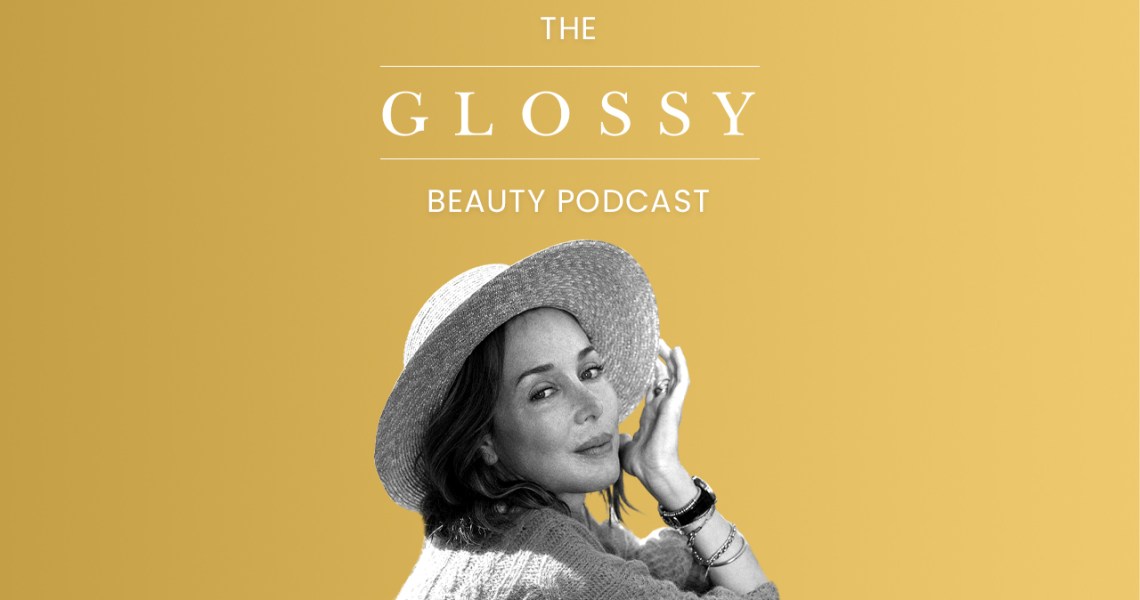Subscribe: Apple Podcasts | Stitcher | Google Play | Spotify
When Tata Harper launched her namesake skin-care brand over a decade ago, she was one of the first beauty pioneers who decided that all-natural formulations and luxury were not mutually exclusive.
“It was about making the best products in the world, always — and using the best ingredients, which are natural ingredients,” said Harper on this week’s episode of the Glossy Beauty Podcast.
Harper’s road to her own brand began when her stepfather was diagnosed with cancer in the mid 2000s, and she was introduced to the concept of toxic load, which is an accumulation of toxins and chemicals in our bodies that people ingest, by one of his doctors. After transitioning to natural home cleaning products, skin care was the “last frontier,” she said.
“I was very attached to the products that I bought; I had bought them since I was a little girl,” she said. “They were the most high-tech, the highest quality. My mom had always been like that, that ‘It’s really important to invest in beauty.’ I remember looking for natural beauty and, at the time [around 2004], that meant going to Whole Foods and little apothecaries here and there. I would find things that weren’t natural, or they were so simple like three oils together.”
Frustrated with the experience, she rushed to department stores for advice. There, associates provided her with products with roses or orchids mixed with synthetic ingredients for so-called efficacy. “I started Googling … and I’m like, ‘Oh, this is petroleum,’ and then, ‘Oh, propylene glycol. What is this stuff? Oh, it’s antifreeze.’ I don’t want to be putting ingredients that belong in my car on my skin. Why are they there? This obviously can’t be what’s giving results.”
In the last five years, a rush of new clean, natural and organic brands have made the white space Harper found more crowded, but she isn’t concerned with the competition. This is especially true as Tata Harper Skincare remains a product company first and limits outsourcing to PR, she said.
“I had no idea how revolutionary [focusing on natural, luxury skin care] was gonna be or how or how different it was. I had no idea the extent that the industry did,” she said. “I just wanted to make sure that I fulfilled that compromise, that commitment that I had with the customer that I’m going to do this.”
Here are a few highlights from the conversation, which have been lightly edited for clarity.
Natural products can be luxurious
“I remember looking for natural beauty and, at the time [around 2004], that meant going to Whole Foods and little apothecaries here and there. I would find things that weren’t natural, or they were so simple like three oils together. They’re natural, but it’s like olive oil and this and that. I remember being like, ‘This is never gonna work for me.’ Also, the experience of the product wasn’t amazing, either. I remember them being sticky, smelling horrible; I hated the whole experience.”
Being a skin-care company first
“I had no idea how revolutionary [focusing on skin care] was gonna be or how or how different it was. I had no idea the extent that the industry did. I just wanted to make sure that I fulfilled that compromise, that commitment that I had with the customer that I’m going to do this. It is not going to be about just outsourcing everything we do, or becoming like a digital agency, like a lot of companies look like today. We’re a real skin care company. The majority of our employees are people that are there working on the product, not people that are thinking about our social media or about other things, because we are a product company.”
Exit possibilities
“We’ve had partners, and the company’s really well-funded. It’s by no means underfunded. Like any successful business, I get calls on a weekly basis, people interested and wanting to do business with us. I honestly don’t think about that for one second. I have a partner and co-CEO Henry [Harper, my husband] that takes those calls, not me. I’m solely focused on the science behind our products, our formulas, our packaging. I’m there to make sure that everything goes well: that everything is on time, that I’m there talking to the teams, making sure everything looks good, that our educational efforts are great. I think that for us to consider a partner, it would have to definitely be a company or someone that respects and appreciates everything that we do, including the mission of the company, our formulation standards, our history, our values. Those are all the things that make our company unique, and that would be the No. 1 priority. We’ve entertained a couple of things like, ‘Oh, this is interesting,’ especially as we grow globally, to have a partner that has that. But our No. 1 priority would be that [between] the company [and us], there’s respect and appreciation for what’s been built and what it’s been built on.”




